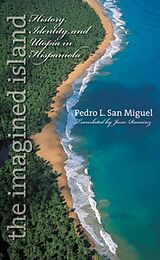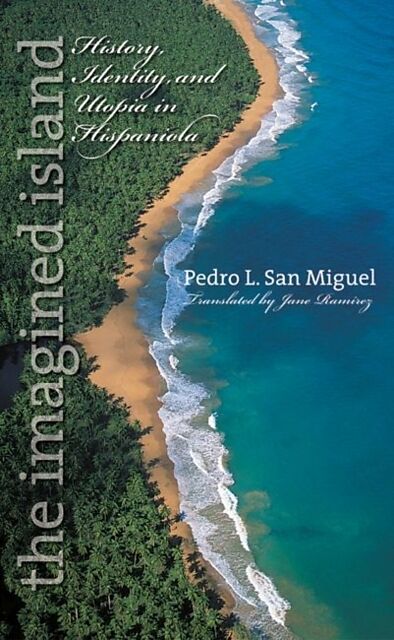The Imagined Island
Einband:
Kartonierter Einband
EAN:
9780807856277
Untertitel:
History, Identity, and Utopia in Hispaniola
Genre:
Geschichte
Autor:
Pedro L. San Miguel
Herausgeber:
The University of North Carolina Press
Anzahl Seiten:
208
Erscheinungsdatum:
19.09.2005
ISBN:
0807856274
Informationen zum Autor Pedro L. San Miguel is professor of history at the Universidad de Puerto Rico, Rio Piedras, and author of several Spanish-language books on Caribbean history. Klappentext In a landmark study of history, power, and identity in the Caribbean, Pedro L. San Miguel examines the historiography of Hispaniola, the West Indian island shared by Haiti and the Dominican Republic. He argues that the national identities of (and often the tense relations between) citizens of these two nations are the result of imaginary contrasts between the two nations drawn by historians, intellectuals, and writers. Covering five centuries and key intellectual figures from each country, San Miguel bridges literature, history, and ethnography to locate the origins of racial, ethnic, and national identity on the island. He finds that Haiti was often portrayed by Dominicans as "the other--first as a utopian slave society, then as a barbaric state and enemy to the Dominican Republic. Although most of the Dominican population is mulatto and black, Dominican citizens tended to emphasize their Spanish (white) roots, essentially silencing the political voice of the Dominican majority, San Miguel argues. This pioneering work in Caribbean and Latin American historiography, originally published in Puerto Rico in 1997, is now available in English for the first time. Zusammenfassung National identity in Haiti and the Dominican Republic.
Klappentext
In a landmark study of history, power, and identity in the Caribbean, Pedro L. San Miguel examines the historiography of Hispaniola, the West Indian island shared by Haiti and the Dominican Republic. He argues that the national identities of (and often the tense relations between) citizens of these two nations are the result of imaginary contrasts between the two nations drawn by historians, intellectuals, and writers. Covering five centuries and key intellectual figures from each country, San Miguel bridges literature, history, and ethnography to locate the origins of racial, ethnic, and national identity on the island. He finds that Haiti was often portrayed by Dominicans as "the other--first as a utopian slave society, then as a barbaric state and enemy to the Dominican Republic. Although most of the Dominican population is mulatto and black, Dominican citizens tended to emphasize their Spanish (white) roots, essentially silencing the political voice of the Dominican majority, San Miguel argues. This pioneering work in Caribbean and Latin American historiography, originally published in Puerto Rico in 1997, is now available in English for the first time.
Zusammenfassung
National identity in Haiti and the Dominican Republic.

Leider konnten wir für diesen Artikel keine Preise ermitteln ...
billigbuch.ch sucht jetzt für Sie die besten Angebote ...
Die aktuellen Verkaufspreise von 6 Onlineshops werden in Realtime abgefragt.
Sie können das gewünschte Produkt anschliessend direkt beim Anbieter Ihrer Wahl bestellen.
Loading...
Die aktuellen Verkaufspreise von 6 Onlineshops werden in Realtime abgefragt.
Sie können das gewünschte Produkt anschliessend direkt beim Anbieter Ihrer Wahl bestellen.
| # | Onlineshop | Preis CHF | Versand CHF | Total CHF | ||
|---|---|---|---|---|---|---|
| 1 | Seller | 0.00 | 0.00 | 0.00 |
